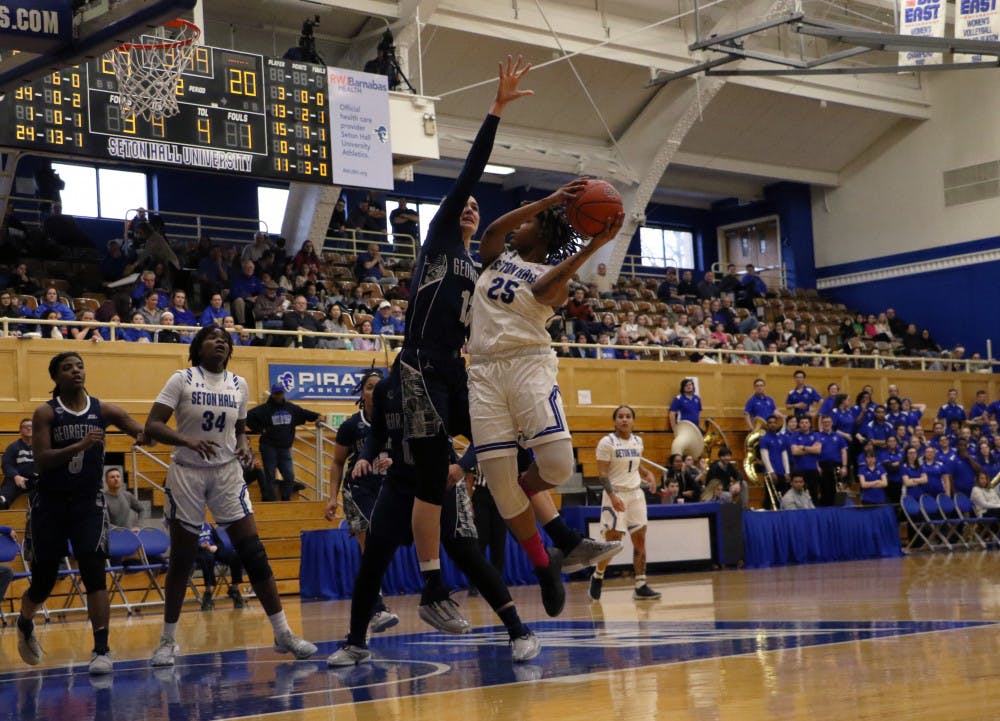Noted Russian-American journalist and activist Masha Gessen came to Seton Hall Wednesday to discuss the history and current status of Russian punk-rebel group, Pussy Riot.
Gessen, writer of the national best-selling novel, "The Man Without a Face: The Unlikely Rise of Vladimir Putin" talked about her most recent book, "Words Will Break Cement: The Passion of Pussy Riot."
The book examines the group's impact on a "protest culture" that arose in Russia during the past few years as a response to what she described as Putin's "regime."
The group made news recently when members Tolokonnikova and Maria Alekhina were released from prison, along with other high-profile prisoners, before the Sochi Olympics. At the Olympics, a live performance resulted in public violence and the arrest of members, although charges were later dropped.
According to Gessen, Pussy Riot is not a punk band, but a "caricature of a feminist punk band." The group offers a critique of "Putinism" in many of its songs.
"If you wear a mask long enough, you don't know where it ends and where your flesh begins," Gessen said of Putin's government. She noted that government propaganda "paints" the feminist band as a group of "spoiled urban kids."
Gessen spoke to Pussy Riot member Nadya Tolokonnikova during her incarceration. Gessen said that what Pussy Riot had instigated in Russia was not a "protest movement" but instead it was more of a "protest culture" because it created an "incredibly broad" movement, encompassing more than 90 cities, crossing borders and economic lines in objection to the government.
The discussion was co-sponsored by the Russian and East European Studies Program and the Slavic Club, and funded by President's Advisory Council.
Mary Marshall can be reached at mary.marshall@student.shu.edu.





